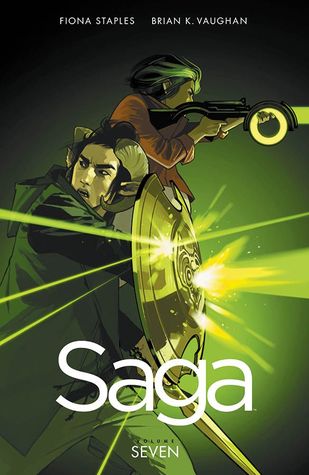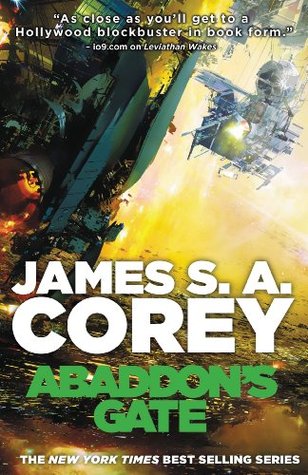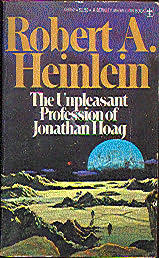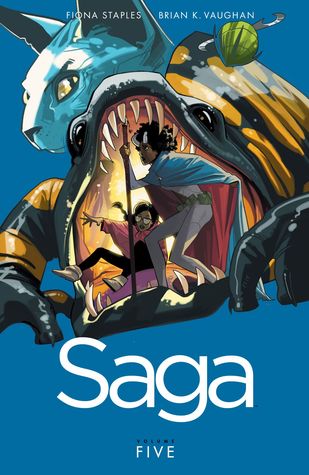 Cynical, quick-on-the-trigger Takeshi Kovacs, the ex-U.N. envoy turned private eye, has changed careers—and bodies—once more... trading sleuthing for soldiering as a warrior-for-hire, and helping a far-flung planet’s government put down a bloody revolution.
Cynical, quick-on-the-trigger Takeshi Kovacs, the ex-U.N. envoy turned private eye, has changed careers—and bodies—once more... trading sleuthing for soldiering as a warrior-for-hire, and helping a far-flung planet’s government put down a bloody revolution.
But when it comes to taking sides, the only one Kovacs is ever really on is his own. So when a rogue pilot and a sleazy corporate fat cat offer him a lucrative role in a treacherous treasure hunt, he’s only too happy to go AWOL with a band of resurrected soldiers of fortune. All that stands between them and the ancient alien spacecraft they mean to salvage are a massacred city bathed in deadly radiation, unleashed nanotechnology with a million ways to kill, and whatever surprises the highly advanced Martian race may have in store. But armed with his genetically engineered instincts, and his trusty twin Kalashnikovs, Takeshi is ready to take on anything—and let the devil take whoever’s left behind.
While Altered Carbon is a noir inspired mystery, Broken Angels is a treasure quest. Takeshi Kovacs, having had his sentence commuted after his success in the first novel, is now making a living as a mercenary on the war torn world of Sanction IV. His Envoy skills make him a valuable asset, and thus he is suited up in an enhanced sleeve—slang term for body, whether organic or artificial—with all sorts of neurological advances (thought controlled weapon interfaces) and biochemical additives (combat ready focus, situational awareness) that make him more lethal than ever. Despite his propensity for killing, we know from Altered Carbon that he's not a heartless monster. He has a code that he lives by, and it's pretty much what keeps him from falling into the abyss of soulless killing machine. He's no prig; he knows what he's doing. But even in war, there are lines that shouldn't be crossed.
All the carnage has added an extra layer of world weariness to his cynical mindset, so when he's offered a chance to go AWOL for a huge payout, he jumps at the chance. The prize is an ancient Martian spacecraft, floating in a remote location of the solar system, but only accessible through a teleportation gate. The only person who knows where the gate is and how to open it is archeologist Tanya Wardani, who's currently wasting away in a refugee camp. Envoys are more than elite soldiers; they're also skilled in the social sciences. Wardani has PTSD, and Kovacs has to work with her—primarily in VR as time can be sped up or slowed down as per the situation—to assist in her recovery.
The Martians were barely discussed in the first book. Basically they're the key to interstellar travel, even providing maps to inhabitable worlds in this corner of the galaxy. Much is still unknown about them, but their remnant technological artifacts are priceless. Archaeology has become a multi-billion dollar industry, despite the protests of actual scientists, and corporations fight over access to dig sites, hoping for the next big find that will yield a bonanza.
Mandrake, one of these corporations, is bankrolling this mission and profiting from the war. Matthias Hand is the executive representing Mandrake. He and Kovacs put together a team from a pile of purchased cortical stacks—the constructs which house the backup of everyone's consciousness, built like airplane black boxes—from the salvaged war dead. The recruitment process, which takes place entirely in VR, makes for a great introduction to each of the book's minor characters, and I found each of these interviews intriguing.
The team then heads to the site of the gate so that Wardani can get to work. There are a host of problems: The nearby city of Sauberville has been nuked, and radiation is slowly killing even these engineered sleeves; there's a saboteur in their midst; Hand's rivals have dropped a semi-intelligent lethal nanobot assembly nearby; and the only way out is guarded by Kovacs' former mercenary unit.
There are a couple sex scenes in the book that seemed gratuitous, especially as they didn't do much in the way of character development, but Morgan plants a clue to the identity of the saboteur in each scene that could easily be overlooked. Still, I have to wonder if they could've been handled differently.
The violence is graphic, but essential to the story. Morgan is emphasizing how terrible and dehumanizing war is. Sanction IV has become a corporate testing ground for the latest and greatest in military hardware. Human life is devalued so much that it becomes nothing more than a line item on a corporate balance sheet. Death is a form of slavery as soldiers become indebted to those who upload their stacks into new sleeves—at a price—and sent back to the front. The alternative is eternity in VR limbo. Stack death is the only true death.
Fortunately, the Martian ship proves to be more than just a MacGuffin. In fact, Morgan plays it up like a cross between a haunted house and Egyptian tomb. Morgan also ties it into the book's anti-war theme, but I won't spoil it for you.
All in all, I found Broken Angels to be a highly entertaining and engaging read, full of action, mystery, and the occasional philosophical debate on the nature of life, death, war, and spirituality.
5 stars
\_/
DED
 Part two of my Halloween read, and as good as part one was, this was even better.
Part two of my Halloween read, and as good as part one was, this was even better. Halloween is fast approaching, but I didn't have anything spooky on the nightstand or the kindle, so I went to the library and picked up the next two volumes of Hellboy.
Halloween is fast approaching, but I didn't have anything spooky on the nightstand or the kindle, so I went to the library and picked up the next two volumes of Hellboy.
 The Alliance has been fighting the Syndics for a century—and losing badly. Now its fleet is crippled and stranded in enemy territory. Their only hope is a man who's emerged from a century-long hibernation to find he has been heroically idealized, beyond belief...
The Alliance has been fighting the Syndics for a century—and losing badly. Now its fleet is crippled and stranded in enemy territory. Their only hope is a man who's emerged from a century-long hibernation to find he has been heroically idealized, beyond belief...
 The gates have opened the way to thousands of habitable planets, and the land rush has begun. Settlers stream out from humanity's home planets in a vast, poorly controlled flood, landing on a new world. Among them, the Rocinante, haunted by the vast, posthuman network of the protomolecule as they investigate what destroyed the great intergalactic society that built the gates and the protomolecule.
The gates have opened the way to thousands of habitable planets, and the land rush has begun. Settlers stream out from humanity's home planets in a vast, poorly controlled flood, landing on a new world. Among them, the Rocinante, haunted by the vast, posthuman network of the protomolecule as they investigate what destroyed the great intergalactic society that built the gates and the protomolecule.
 Dominique O’Brien—her friends call her Mo—lives a curious double life with her husband, Bob Howard. To the average civilian, they’re boring middle-aged civil servants. But within the labyrinthine secret circles of Her Majesty’s Government, they’re operatives working for the nation’s occult security service known as the Laundry, charged with defending Britain against dark supernatural forces threatening humanity.
Dominique O’Brien—her friends call her Mo—lives a curious double life with her husband, Bob Howard. To the average civilian, they’re boring middle-aged civil servants. But within the labyrinthine secret circles of Her Majesty’s Government, they’re operatives working for the nation’s occult security service known as the Laundry, charged with defending Britain against dark supernatural forces threatening humanity.
 As a kid, I naturally took to books. Way back in the 70s, the internet was still the province of the Defense Department and a few select universities, our phones didn't do anything more than ring, and computers were these massive monoliths that didn't do much besides crunch a few numbers. Sure there was TV, but we only had 13 channels. The only real medium to feed your imagination was books.
As a kid, I naturally took to books. Way back in the 70s, the internet was still the province of the Defense Department and a few select universities, our phones didn't do anything more than ring, and computers were these massive monoliths that didn't do much besides crunch a few numbers. Sure there was TV, but we only had 13 channels. The only real medium to feed your imagination was books.
 In a corporate-dominated spacefaring future, planetary missions must be approved and supplied by the Company. Exploratory teams are accompanied by Company-supplied security androids, for their own safety.
In a corporate-dominated spacefaring future, planetary missions must be approved and supplied by the Company. Exploratory teams are accompanied by Company-supplied security androids, for their own safety.
 Lieutenant James Shelley, who has an uncanny knack for premeditating danger, leads a squad of advanced US Army military tasked with enforcing the peace around a conflict in sub-Saharan Africa. The squad members are linked wirelessly 24/7 to themselves and a central intelligence that guides them via drone relay—and unbeknownst to Shelley and his team, they are being recorded for a reality TV show.
Lieutenant James Shelley, who has an uncanny knack for premeditating danger, leads a squad of advanced US Army military tasked with enforcing the peace around a conflict in sub-Saharan Africa. The squad members are linked wirelessly 24/7 to themselves and a central intelligence that guides them via drone relay—and unbeknownst to Shelley and his team, they are being recorded for a reality TV show.
 John Carter is out in the American West of the 1880s and, while being chased by bloodthirsty Indians (paraphrasing his description), stumbles into a cave whereupon he's mysteriously teleported to Mars, or Barsoom as the locals call it. He proceeds to have swashbuckling adventures as the planet's lower gravity gives him amazing strength and agility.
John Carter is out in the American West of the 1880s and, while being chased by bloodthirsty Indians (paraphrasing his description), stumbles into a cave whereupon he's mysteriously teleported to Mars, or Barsoom as the locals call it. He proceeds to have swashbuckling adventures as the planet's lower gravity gives him amazing strength and agility.
 Don't let the title fool you. This book is about far more than that. It covers Reagan's adversarial relationship with the former Soviet Union and communism. There's quite a bit of background biography to explain how Reagan came to be the hardliner he was. It highlights the big four speeches he gave and the summits with Gorbachev.
Don't let the title fool you. This book is about far more than that. It covers Reagan's adversarial relationship with the former Soviet Union and communism. There's quite a bit of background biography to explain how Reagan came to be the hardliner he was. It highlights the big four speeches he gave and the summits with Gorbachev.
 Galactic Center Saga Book #2.
Galactic Center Saga Book #2. While en route to reunite Sir Robot IV (no longer a prince) with his son, the treeship has run out of fuel and makes an emergency stop on the war torn world of Phang. In previous issues, Phang has always been referred to as a terrible place. Sophie, who was a child when she was sold as a sex slave, was orphaned on Phang. Marko's unit had a rotation there. So it was with some trepidation that the ship touched down, though it was in a ruined city far from the front lines. They soon meet a tribe of simple meerkat-like people who lived among the ruins and spend the next six months taking care of them, making food for all these mouths greatly slows down the refueling process.
While en route to reunite Sir Robot IV (no longer a prince) with his son, the treeship has run out of fuel and makes an emergency stop on the war torn world of Phang. In previous issues, Phang has always been referred to as a terrible place. Sophie, who was a child when she was sold as a sex slave, was orphaned on Phang. Marko's unit had a rotation there. So it was with some trepidation that the ship touched down, though it was in a ruined city far from the front lines. They soon meet a tribe of simple meerkat-like people who lived among the ruins and spend the next six months taking care of them, making food for all these mouths greatly slows down the refueling process.
 For generations, the solar system - Mars, the Moon, the Asteroid Belt - was humanity's great frontier. Until now. The alien artifact working through its program under the clouds of Venus has emerged to build a massive structure outside the orbit of Uranus: a gate that leads into a starless dark.
For generations, the solar system - Mars, the Moon, the Asteroid Belt - was humanity's great frontier. Until now. The alien artifact working through its program under the clouds of Venus has emerged to build a massive structure outside the orbit of Uranus: a gate that leads into a starless dark.
 I got this book for my daughter this Christmas. I'd checked out a couple of the cartoons and thought that it was a match for her. And, it seemed like I could read it, too, and then we could talk about it. Bonding with my daughter over a book. How cool is that?
I got this book for my daughter this Christmas. I'd checked out a couple of the cartoons and thought that it was a match for her. And, it seemed like I could read it, too, and then we could talk about it. Bonding with my daughter over a book. How cool is that?
 Bruce Dickinson is best known for his role as the lead singer for Iron Maiden, but fans know that he's accomplished so much more than that. World-class fencer, commercial airline pilot, novelist, radio presenter, scriptwriter, beer brewer are just some of the occupations outside of music that the man has pursued through the years. This memoir explores the passions of a man with an insatiable curiosity.
Bruce Dickinson is best known for his role as the lead singer for Iron Maiden, but fans know that he's accomplished so much more than that. World-class fencer, commercial airline pilot, novelist, radio presenter, scriptwriter, beer brewer are just some of the occupations outside of music that the man has pursued through the years. This memoir explores the passions of a man with an insatiable curiosity.
 Six stories (five short, one novella) of Heinlein's that were published from 1941-59. I don't remember how it came to be in my possession, but it'd been on my nightstand for years. I got tired of looking at, so now seemed like a good time to read it.
Six stories (five short, one novella) of Heinlein's that were published from 1941-59. I don't remember how it came to be in my possession, but it'd been on my nightstand for years. I got tired of looking at, so now seemed like a good time to read it.
 A couple of years have passed since Volume 5. Marko and Alana have been searching for Hazel and Klara, not knowing where the surviving members of the Last Revolution cell took them. They finally discover their whereabouts and recognize that they're going to need the help of a frenemy if they're to have any hope of rescuing them.
A couple of years have passed since Volume 5. Marko and Alana have been searching for Hazel and Klara, not knowing where the surviving members of the Last Revolution cell took them. They finally discover their whereabouts and recognize that they're going to need the help of a frenemy if they're to have any hope of rescuing them. The volume opens with background on how recruiting for the war effort for both sides has evolved over time. As the war front shifted away from the two worlds, native recruitment waned. An all-volunteer army from home combined with aggressive outsourcing enabled many from Wreath and Landfall to become emotionally detached from the conflict. It was "over there" and not something to really think about.
The volume opens with background on how recruiting for the war effort for both sides has evolved over time. As the war front shifted away from the two worlds, native recruitment waned. An all-volunteer army from home combined with aggressive outsourcing enabled many from Wreath and Landfall to become emotionally detached from the conflict. It was "over there" and not something to really think about.
 A huge international corporation has developed a facility along the Juan de Fuca Ridge at the bottom of the Pacific Ocean to exploit geothermal power. They send a bio-engineered crew—people who have been altered to withstand the pressure and breathe the seawater—down to live and work in this weird, fertile undersea darkness.
A huge international corporation has developed a facility along the Juan de Fuca Ridge at the bottom of the Pacific Ocean to exploit geothermal power. They send a bio-engineered crew—people who have been altered to withstand the pressure and breathe the seawater—down to live and work in this weird, fertile undersea darkness.
 Maybe you've read the book. Maybe you've seen the movie. Maybe you're old enough to remember the events as they happened. Regardless, it's difficult not to be aware of the
Maybe you've read the book. Maybe you've seen the movie. Maybe you're old enough to remember the events as they happened. Regardless, it's difficult not to be aware of the  If by "know-it-all" the author means a
If by "know-it-all" the author means a  A collection of seven individual stores, one of which, "Almost Colossus", follows up the events that transpired in volume two. With the exception of the last one, the stories are folktales that Mignola has re-worked into the Hellboy mythos. They take place all over Europe, from spooky graveyards to ruins on lonely heaths, from catacombs to abandoned mountain villages.
A collection of seven individual stores, one of which, "Almost Colossus", follows up the events that transpired in volume two. With the exception of the last one, the stories are folktales that Mignola has re-worked into the Hellboy mythos. They take place all over Europe, from spooky graveyards to ruins on lonely heaths, from catacombs to abandoned mountain villages. The first two volumes got readers acquainted with Spider Jerusalem and the city that he loves to hate. The stories were primarily single or double issues with the overall narrative running in the background. Volume three gives us a story over six issues, "Year of the Bastard."
The first two volumes got readers acquainted with Spider Jerusalem and the city that he loves to hate. The stories were primarily single or double issues with the overall narrative running in the background. Volume three gives us a story over six issues, "Year of the Bastard."
 Think of this as a
Think of this as a